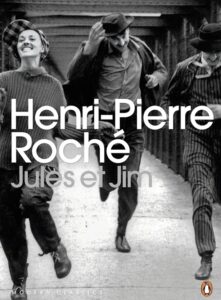
It is interesting to debate which is the higher art, literature or movies. I tend to come down on the side of movies. Movies have images, sounds, music, and words. Books only have words. I nodded in agreement when Stanley Kubrick said, “The screen is a magic medium. It has such power that it can retain interest as it conveys emotions that no other art form can hope to tackle.”
Three times, while writing Movies That Will Change Your Life, I was so swept away by a movie that I decided to read the book upon which the movie was based. I read the novels “Jules and Jim,” “My Brilliant Career,” and “Remains of the Day.” Each time, after reading the book, my conclusion was the same. The movie was magnificent but the book was even better!
While I was reading “Jules and Jim,” I pictured the characters in the movie. As I read, Jules was still Jules, Jim was still Jim, and Catherine was still as capricious as ever. The book, though, was overflowing with words and these words provided delicious detail missing from the movie. I found myself in love with the characters and their story and I can only report that I felt overwhelmed with emotion while reading “Jules and Jim!” The sentences in “Jules and Jim” were short and simple, just as Truffaut describes them in his afterword to the novel:
“From the very first lines, I fell in love with Henri-Pierre Roche’s prose. At that time, my favorite writer was Jean Cocteau for his quickfire sentences, their perceptible dryness and the precision of his images. I was discovering, in Henri-Pierre Roche, a writer who seemed to me to be stronger than Cocteau, for he achieved the same kind of poetic prose using a less extensive vocabulary, and making ultra-short sentences from everyday words…Jules and Jim is a novel about love in telegraphic style, written by a poet who has forced himself to forget his culture and to string words and thoughts together in the way a laconic, down-to-earth peasant would do.”
Truffaut’s description of Roche’s prose style reminds me of similar remarks by Henry Miller regarding the simple, direct style of the incomparable French novelist Jean Giono who also used simple sentences to write prose that pierces the heart like poetry. Here is a passage from the novel “Jules and Jim” which I hope will convince you to read Henri-Pierre Roche’s dazzling novel:
“Gertrude gave herself to Jim. She came to see him in the evening once or twice every week. She was a generous full blooded creature. When they were not making love she told him all about her life, which she looked upon as a perpetual game against God; she was always the loser. A whole gamut of Northern temperament and emotions, such as he had never met before, was revealed to Jim. She told him about her problems. Neither of them slept when they were together, though Jim did sometimes feel his eyelids flicker. She liked his way of listening but never gave him her close attention. Our Jules is a charming man, she said. He understands women better than any man I know, and yet, when it comes to taking us, he loves us too much and not enough. Sometimes he’s witty, sometimes he wants us; either way he always chooses the wrong moment. I’ve done my best to help him but it’s no good. He turns Lucy into a patient idol and worships her. Jules is a discoverer and a poet, but as a husband he’d be too gentle, one would always be in his debt.”
You simply must read “Jules and Jim!” Roche’s novel is sublimely beautiful, extraordinarily wise, and unbelievably entertaining!